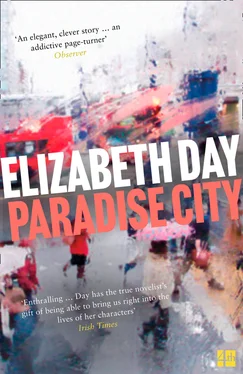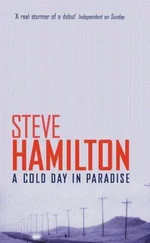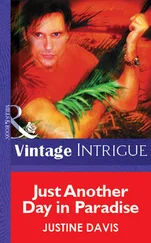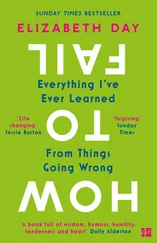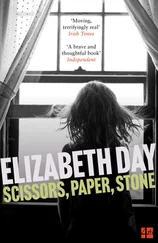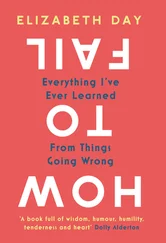The waiter looks suitably apologetic but then takes a small age pouring the consommé into each of their dishes from individual white jugs. Once this is done, he stands back for a moment as if awaiting plaudits for the culinary genius on show. When none is forthcoming, he gives a simpering smile, bows and clasps his hands together.
‘Bon appétit,’ the waiter says, retreating backwards like a royal footman.
‘Christ,’ says Howard. ‘I thought we’d never get rid of him.’
Esme laughs. He looks at her, his eyes suddenly twinkling.
‘I didn’t catch your name.’
‘Esme.’
‘Are you Scottish?’
‘No, my Dad was.’
‘Was?’ Howard fires back.
‘Yes, he died when I was eight.’
He puts his spoon down and seems genuinely taken aback. Esme is used to all sorts of reactions when she tells strangers: shocked intakes of breath, sympathetic squeezes of the arm, patronising assurances that ‘time’s a great healer’ but, perhaps because he’s had to deal with his own loss, Howard’s appears oddly sincere.
‘I’m sorry,’ he says finally.
Rupert grimaces and wrinkles his brow, to show that he is terribly sorry too.
‘It’s all right. It was a long time ago.’
‘You never get over something like that,’ Howard says. ‘How did he die?’ he asks bluntly.
‘Drink driving.’
‘Christ. Did they catch the bastard?’
‘They didn’t need to. My father was the drunk driver.’
Howard sits motionless, a spoonful of soup hovering dangerously over the tablecloth at a midway point between bowl and mouth.
She tries not to think of her father too much but now, having mentioned his death without exactly wanting to, broken fragments of an unasked-for memory coalesce in her mind, each tiny element shooting towards a central point like a series of magnetic filings. The image is of Esme, standing at the threshold to her parents’ bedroom when she was eight years old. She is watching, frightened, as her mother kneels in front of the bed and clutches at her hair, sobbing as she grabs fistfuls and pulls at it until small piles of ash-blonde litter the sheepskin rug beneath her knees.
‘Mummy?’ she says, this child version of herself.
Her mother stops crying, the effort of it causing her to hiccough. She turns her ravaged face towards Esme and tries to smile, her lips rubbed raw of lipstick, her cheeks veined with black, and it is this – the strangeness of her half-tragic, half-comic face, the disarray of her make-up – that affects her daughter most of all, that will stick with Esme for years.
Her memories of her father are more indistinct. A strong arm, lifting her onto his shoulders. A loud expressive laugh. Terror mingled with affection in his presence. A knowledge, even at that young age, that her father was good-looking, a charmer, a man others liked to be around.
At the time of his death, her brother Robbie was too young to know what had happened. For a few years after the police knocked on their door one drizzle-dark November night, interrupting Jim’ll Fix It, Robbie kept asking her what their father was like and she would try to answer as truthfully as she could.
‘He was fun,’ she said. ‘He told good stories. He made Mummy laugh.’
But, looking back, Esme is not sure, any more, how much of what she told Robbie was her true recollection and how much of what she remembers was a story she told herself from faded photographs, a desire to make the best bits real by saying them out loud. She doesn’t know. She doesn’t know if it matters.
Esme smiles brightly, breaks off a lump of bread from the warm roll on her side-plate and butters it, re-positioning the knife in a precise, straight line. She taps the knife handle three times with her index finger. The number three, she has convinced herself, has mysterious talismanic qualities that keep her safe.
Howard has finished his soup. Rupert coughs drily and conversation is temporarily suspended. In the uncomfortable semibreve of silence that follows, it is Howard who speaks first.
‘You’ve read about my daughter, I suppose?’
Esme nods. She glances anxiously at Rupert who had made it abundantly clear on the phone that she was ‘on no account whatsoever’ to mention Ada Pink’s disappearance over lunch. But of course, she has read the press cuttings, has seen the smudged newsprint image of Ada Pink’s features staring out at her from bygone front pages: the same passport photo used again and again, depicting an unsmiling, frail-looking girl with hollow cheeks, a prominent brow and hair scraped back like a ballerina.
Esme had been in her first year at university when Ada Pink disappeared and the story of her vanishing had seemed little more than a backdrop to diluted Red Bull cocktails and pyjama-themed pub crawls. But now, meeting Ada Pink’s father, she is struck by the force of his unhappiness. After all these years, she thinks, his devastation is fresh as new snow.
She fiddles with the corner of her napkin.
‘She’d be about your age by now,’ he carries on. ‘Ada. That was her name.’ A pause. ‘Or is. I’m never sure what tense to talk in.’
He gives a bark of bitter laughter, shattering the strange atmosphere that has settled around the table. She wonders whether to say something about how sorry she is but, at the same time, doesn’t want to sound bogus. She has, after all, only just met him. She’s a journalist, not a friend.
‘Well, I suggest—’ Rupert starts, but Howard interrupts him. His gaze is glittery, unfocused; his smile twisted.
‘Let’s order some plonk, shall we, Esme?’ he says, picking up the heavy bound wine list. ‘Toast absent friends.’
She nods her assent, surprised, all at once, to find she has the beginning of tears in her eyes.
Over a starter of artfully arranged radishes and crisp lettuce leaves that costs more than anyone could reasonably have anticipated, an equilibrium of sorts is established. Howard, warmed up by a full-bodied Pauillac (he had been politely conscious of the fact that the Tribune was paying), allows himself to relax. He regales Esme with riotous stories about famous people he has met, including the time he hosted Elizabeth Taylor on his private yacht and she lost one of her diamonds in the shower.
She glances across the table at Rupert, wondering if they are teasing her for sport, but he appears perfectly relaxed. He catches her looking and grins wolfishly, as if implying he’s heard every one of these anecdotes a thousand times before. Rupert really is very handsome, albeit in a rather boring way: the male equivalent of a neatly ironed shirt. But there’s something about him she can’t quite ignore, as if his very blandness poses a challenge. She wonders what he’s like in bed. Filthy, she imagines. Probably has a thing about spanking.
At the end of the meal, they order coffee. It comes in pretty china cups. Sir Howard picks out three lumpen brown sugar cubes with his fingers and drops them in his coffee, causing a small splash of liquid onto the tablecloth.
‘Well, Esme, I don’t mind saying that I wasn’t looking forward to this lunch. Thought Rupert was a bloody idiot for setting it up.’
Esme stirs in her milk. She has already realised Sir Howard is the kind of man who doesn’t want to be interrupted in full flow.
‘But I’m glad to have met you, sweetheart.’
She swallows her indignation. With men like Sir Howard, you just had to go with it. That was how you got the best contacts. Journalism taught you all sexism was relative.
He leans over and pats her hand paternally.
‘We should be going,’ Rupert says. ‘We’re already late for our 2.30.’
‘Sure, sure,’ Howard replies, pushing back his chair. ‘Rupe, can you sort out a Fash Attack discount card for this young lady?’
Читать дальше
